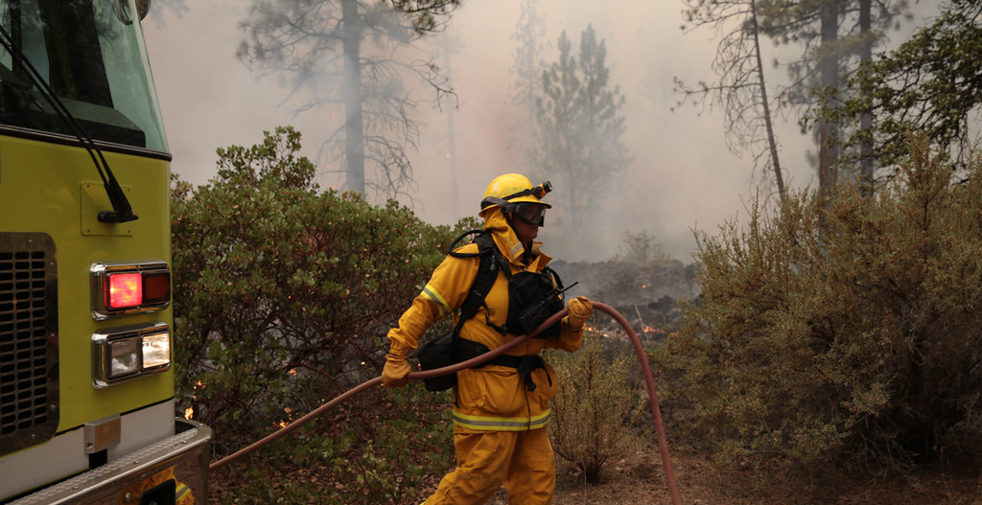Fires continue to rage in Australia with no end near in sight. The situation garners more and more media attention by the day as we enter the third month of fires. “These are the worst bushfires in Australian history,” said 5th Year ME Major and Australian student Hayden Bartsch, “Fortunately, the lives lost in the fires have not matched those of the 2009 bushfires, but the long term environmental, economic and social outcomes will
be devastating.”
Australia’s wildfire crisis is an ongoing battle that will continue for months to come. “A billion animals have died, and that number is rising every day,” said 3rd-Year EAS Major Hannah Verboncoeur, “Over 60 thousand square kilometers of land has been incinerated by the fires, destroying the habitats of many animals that may have tried to repopulate the area in the future. People’s homes are being destroyed, and people relocated. The ecosystems and people of Australia will forever face the impacts of the fires.”
The historical event is highlighting global issues that have been brought on by climate change. “The data are in, and 2019 was the warmest and driest year in Australia ever recorded, setting up the conditions for extreme flammability,” Dr. Cobb Director of the Global Change Program at Tech said. “Unfortunately, this is part of a long-term trend strongly linked to climate change, with heat extremes and drought conditions expected to worsen in coming decades. These deadly bushfires are yet another horrific taste of our climate future should we fail to curb the rise of greenhouse gas emissions in the next decade or two.”
Many around the world and included at Tech have highlighted the systemic issues that allowed the situation to take place. “As an Earth and Atmospheric Science major,” said Verboncoeur, “I feel a responsibility to educate both myself and the public about environmentally devastating events like the fires in Australia. These horrifying series of fires will change Australia’s ecosystems and impact the people there forever. The climate of Australia has been the warmest it’s been in over 100 years, and the warming trend continues to rise. This is the new normal for regions all over the world as more communities and Earth systems face the catastrophic impacts of climate change.”
Verboncoeur continued, “These fires aren’t just ravishing the ecosystems and air quality of Australia either. Entire infrastructures, cities, and surrounding countries are being impacted as well. In New Zealand, for example, ash from the fires is covering glaciers, making their surface darker and, in turn, absorb more incoming light as heat.”
Many people are dedicating their time and effort to ensure that the fires are put out. “The heroes who are fighting the fires,” said Hayden Bartsch, “Tens of thousands of the men and women fighting the fires are volunteers working [15 plus] hour shifts with minimal breaks. Additionally, 3,000 army reservists were deployed to help fight the fires for the first time in history.”
What comes next is a question on many minds as the blaze continues. “Preventative measures must be taken globally,” said Verboncoeur, “Whether that’s in the political realm with Environmental policy decisions, educationally with more extensive Earth Science curricula in schools or even within the fields of engineering as we prepare our world and communities with infrastructure to adapt to this new normal. Our jobs as people who can protect the environment and prevent much of our influence on climate change should be to employ what skills we have to help work towards a global effort against climate change.
While progress is needed, there are some obstacles impeding progress. “It is important to note that there has been a pushback by the Greens Party,” said Bartsch, “In the past for years against controlled back burning. Back burning is a practice that dates all the way back to the native inhabitants. It’s a proven tactic that wasn’t exercised enough before these bushfires.”
This historical crisis will carry on for months to come, but many people believe in perseverance. “Australians are damn tough,” said Bartsch, “Bushfires are a common occurrence throughout Australian history, and we always bounce back. Our wildlife have adapted to survive these circumstances. In fact, some plant species rely on fires for germination. It’s a shocking situation, but the Australian people have hearts forged in fire – we will come together and persevere through these tough times, with or without our government behind us.”
